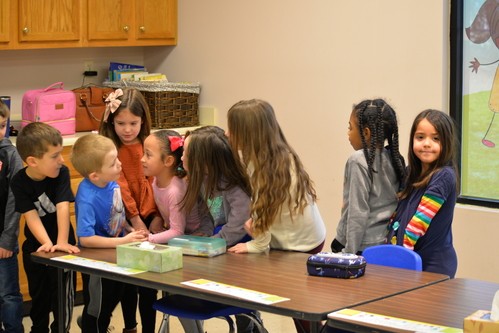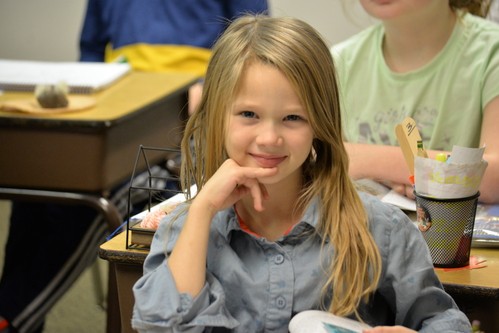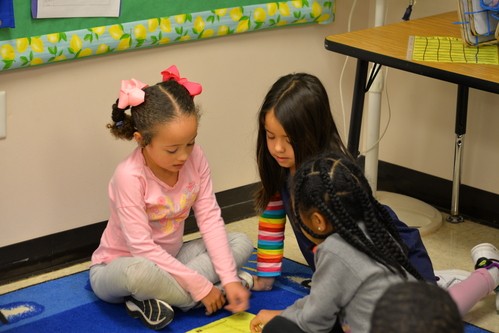
School Contact: (502) 477-9617 Ext. 200 or email by clicking the email icon below
Spencer Christian School K-8
Spencer Christian desires to offer your family an affordable, Christian educational option.
- Small class sizes of up to 16 students
- Experienced, qualified, Christ-following teacher
- Curriculum Includes: Bible, phonics, handwriting, literature, mathematics, foreign language, science and social studies (meeting all the state curriculum requirements)
- Partial-Week: all classes meet Tuesday, Wednesday and Thursday
- Kindergarten hours 9:00 – 2:00, 1st – 8th grade hours 9:00 – 3:30

Kindergarten, 1st & 2nd Grade Curriculum

Current curriculum is available in PDF format on the school Forms page. This includes:
Phonics and Reading
Spelling and Printing
Arithmetic
Phonics and Reading
Spelling and Printing
Arithmetic
Geography, History, and Science
Christian Studies
Spanish
Physical Education
Christian Studies
Spanish
Physical Education

3rd Grade Curriculum
Current curriculum is available in PDF format on the school Forms page. This includes:
Literature
Latin
Conversational Spanish
Math
History
Bible
Science
Physical Education
Literature
Latin
Conversational Spanish
Math
History
Bible
Science
Physical Education
4th-8th Grade Curriculum
Current curriculum is available in PDF format on the school Forms page. This includes:
Literature
Grammar, Composition, Spelling
Latin
Spanish
Math - Course 3/Algebra 1
Geography and Cartography
History
Bible
Science
Physical Education
Literature
Grammar, Composition, Spelling
Latin
Spanish
Math - Course 3/Algebra 1
Geography and Cartography
History
Bible
Science
Physical Education
Tuition and Fees - K-8
In an effort to make a private, Christian education affordable for more families, Spencer Christian has chosen the following tuition and fee schedule for the 2026-2027 school year:
These fees include all books, supplies, etc.
Kindergarten through 8th tuition begins in June. Parents/Guardians will need to submit June, July and August’s payments during the summer months while school is not in session. The school chose to distribute the annual tuition among 12 months to make the monthly payment lower (tuition installments for Kindergarten through Grade 8 are paid beginning the preceding summer; families who enroll after school begins would expect to pay a higher monthly installment.)
**Financial assistance available. Please email the Director at school@spencerchristian.org for FACTS online application. Scholarship funds are limited and awarded on a first-come/first-served basis until funds are depleted.
***A 5% discount is available to families paying the annual amount in full before school begins.
****A sibling discount of $50/month for 2nd+ children in the same family applied to students up to 8th grade only.
Kindergarten through 8th tuition begins in June. Parents/Guardians will need to submit June, July and August’s payments during the summer months while school is not in session. The school chose to distribute the annual tuition among 12 months to make the monthly payment lower (tuition installments for Kindergarten through Grade 8 are paid beginning the preceding summer; families who enroll after school begins would expect to pay a higher monthly installment.)
**Financial assistance available. Please email the Director at school@spencerchristian.org for FACTS online application. Scholarship funds are limited and awarded on a first-come/first-served basis until funds are depleted.
***A 5% discount is available to families paying the annual amount in full before school begins.
****A sibling discount of $50/month for 2nd+ children in the same family applied to students up to 8th grade only.
Why a partial week?
As a parent/guardian, you may be wondering how a child’s education can be accomplished in less than a normal 5-day school week. The following information may be helpful as you answer that question:
The main academic objectives of the elementary years can be achieved in reduced time by eliminating unnecessary interruptions to the school day (assemblies, special guests, fundraisers, elective classes, etc.). We strongly believe that individualized attention at school and at home can accomplish goals that cannot be achieved in a large classroom setting.
Our reduced academic week has these advantages:
The main academic objectives of the elementary years can be achieved in reduced time by eliminating unnecessary interruptions to the school day (assemblies, special guests, fundraisers, elective classes, etc.). We strongly believe that individualized attention at school and at home can accomplish goals that cannot be achieved in a large classroom setting.
Our reduced academic week has these advantages:
- Lowers tuition and makes a private, Christian education affordable for more families
- Maintains parents as primary influence during this crucial time of development by increasing time spent at home and reducing time spent with peers
- Reduces absenteeism by providing free days for doctor/dentist and other appointments
- Eliminates the “Sunday night blues” by providing Monday/Friday as a day for reading/homework assignments